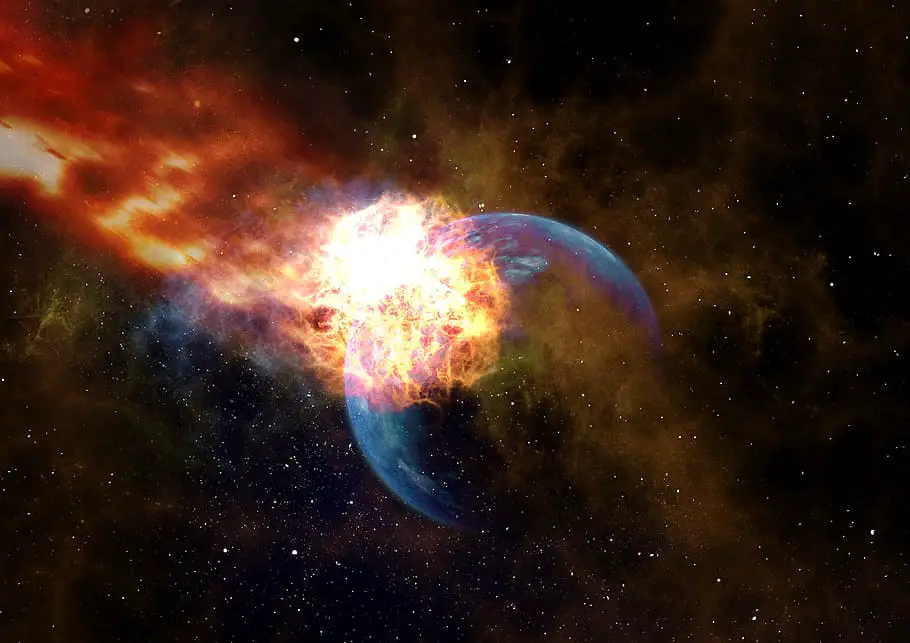In many works of science fiction, including movies and books, a reoccurring plot point is the impact of a meteor on Earth. Meteorites do, in fact, crash into the Earth on a very regular basis, despite the fact that the idea may appear to be ridiculously implausible. On the other hand, the likelihood of one collapsing and inflicting considerable harm in a populated region is quite low.
Meteors are fragments of rock or metal that are very small and travel through space before entering the atmosphere of the Earth. They are subjected to extremely high levels of friction and heat as they pass through the atmosphere, which causes them to burn up and produce a brilliant trail of light across the sky. A meteor or shooting star is the common name for this type of celestial event.
The vast majority of meteors are quite tiny and disintegrate entirely in the atmosphere before ever reaching the ground. On the other hand, larger meteors have a greater chance of penetrating Earth’s atmosphere and making it to the surface of the planet. Meteorites are the common name for these rocks.
There is a relatively small chance that a meteorite may crash into Earth and cause severe damage. According to NASA, the odds of a person being struck by a meteorite are approximately one in 700,000 at any given moment. Even less likely is the scenario in which a meteorite strikes a populated region and causes considerable destruction.
But it’s not completely out of the question for a meteorite to wreak some damage. The Chelyabinsk meteor that erupted over Russia in 2013 is the most well-known example of this type of event. The explosion was responsible for severe property damage and injured more than a thousand people. It is estimated that the Chelyabinsk meteor had a diameter of approximately 20 meters, and its explosion was equivalent to that of approximately 30 Hiroshima bombs.
Even while the likelihood of a meteorite inflicting considerable harm is minimal, astronomers and other experts continue to keep a close eye on the skies in search of potential dangers. The Near Earth Object Program at NASA monitors the orbits of asteroids and comets that are thought to have the potential to impact Earth. In addition, there are a number of ground-based and space-based telescopes that are devoted to the hunt for objects that are close to Earth.
In conclusion, although the likelihood of a meteorite hitting Earth and causing considerable harm is rather low, this scenario is not completely out of the question. Scientists and astronomers are continuing to keep a close eye on the skies in search of any potential dangers, and efforts are currently being made to devise measures that would reduce the likelihood of a catastrophic impact. However, for the time being, the likelihood of a meteorite inflicting considerable harm to a populated area is rather low; hence, there is no requirement for widespread anxiety regarding this possibility.
![]()
